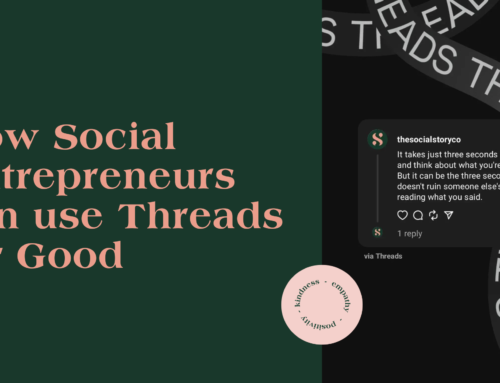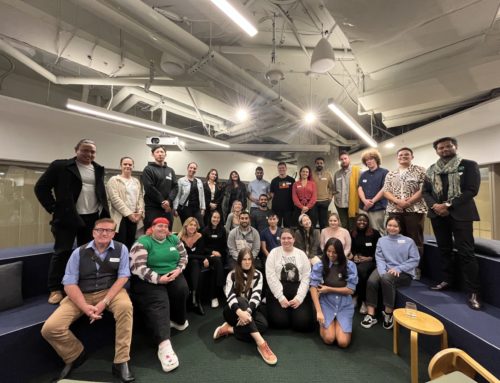Key Takeaways:
– There is a great power in social media if we understand how to use it to our favour
– As both businesses and individuals, we need to be mindful of our relationship with social media
– It’s ok to not post
The events over the past few weeks in response to the murder of George Floyd have been a wake-up call to the what we post on social media. We all have digital real estate on our profiles and in everything we post to change the conversation and affect real change.
There are a few key takeaways we have seen in this that we should remember what we post any time:
1. Our social media actions can create actual change. By refusing to be quiet about these issues, by saying their names, this issue has been hard to ignore. And what’s more, it has led to record numbers of people heading to the streets, making active changes and having proper conversations to push our world forward.
2. It must go beyond social media. Our work is not done after we share a few things on social media. We must follow-through in our actions off the platform. It’s the people actually in the streets, it’s the petitions being signed, it’s registering to vote and heading to the polls in November. Social is fantastic in bringing awareness to the issue and finding great resources but then we need to do more away from our screens.
3. The content we consume is important – and we need to diversify our feeds. We need to actively choose to follow minorities and help to share their stories.
4. We need to understand the impact of what we post. Everyone rushed to post black squares on Instagram in solidarity with #BlackLivesMatter. And while it was empowering to see the universal support, it was ineffective and showed a great irresponsibility. The initiative coopted a movement from the music industry – The Show Must Be Paused – and became far removed from their initial intention.
It also flooded the hashtag so that important information to coordinate the protests, let alone actually help to amplify the melanated voices as was intended. Our algorithms are designed to show our ‘friends’ posts first. So for days, if you were just seeing your network just post a black square, it actually did little to let through the voices we did want to hear. We should’ve just been quiet.
What this truly revealed is that we know we have power through social media but we must do better to understand how to harness it. We have a responsibility to do better in our every day actions, and it starts with what we post.
What this truly revealed is that we know we have power through social media but we must do better to understand how to harness it.
So, before you go to post on your feed, make sure you ask yourselves these questions.
1. Why am I posting this?
This is a question that should underpin your entire social media presence. For businesses, it might seem like just a given but it pays to dig a little deeper than that. Do you want to use social media just for brand awareness? Do you want to sell directly through social? Starting with your why can help steer all your decisions with your core mission in mind. If it doesn’t serve your purpose, don’t do it.
If you’re struggling to figure out your business’ why, get in touch and we can help you out.
But this counts for individuals too. We too easily look to social media for pure validation and contributes to a greater craving for just another like. Understanding the link between your mental health and what you’re seeking in social media is important in having a healthy relationship with it. You can read more about finding a productive why for your social media presence here.
2. How will it affect my audience?
Have you ever spent your time bread-crumbing a crush on social media? Are you posting some of your best thirst traps so your ex can see you thriving without them? You should be spending the same amount of thought to everyone who might look at a piece of content you put out.
Yes, you can go in with all good intentions, but the work is only half done until your audience receives the message too. When your strategy and insight works out, they should follow along with your goals and be inspired, want to buy or learn more about your organisation or yourself.
But it could also go wrong. Is there a chance someone might take it the wrong way? Is there enough context around your post? Could someone be triggered by the content you’re posting particularly if there is mention of violence or mental health problems? You have a responsibility to consider how this might affect your audience.
Sure, we can’t win it all and oftentimes – particularly on social media – it can get out of control and messages get misconstrued when they’re limited to only 140 characters. But we shouldn’t just throw up our hands and give up. Learn more about why this could be offensive and recognise that you might not understand their perspective.
3. Is this harming anyone?
So how do we mitigate the harm? Ask yourself the right questions:
- If you’re reposting something, have you read the whole article or post to know if this is accurate? Have you checked the source? Is it legitimate? It is not enough for social media platforms to be stepping up and identifying misinformation, we have to do the work too.
- If you’re sharing your story, recognise if it is appropriate and what sort of weight your privilege might hold in the story. When in doubt, be authentic and transparent with why you are sharing it.
- Think about the image you’re sharing. If you’ve sourced it from elsewhere, credit it for we should respect copyright and the talents of artists. If it’s an image of people, did you have permission to share? And particularly, if it was taken at an event like a protest, could identifying features put them at legal risk?
- If you’ve posted a picture of yourself, it can be tempting to go in with a healing brush or nice filter. But how are you contributing to some of the negative body images that can be perpetuated on social media. Are you contributing to this ideal by not being authentic?
- If it could trigger someone because of violence or mental health, put trigger warnings so your audience can skip if they feel they need to.
4. How is it contributing to the conversation?
More than ever, the past few weeks have shown the pure impact that we have in changing the conversation through social media. Every IG story, ever post and even every retweet is an opportunity for more stories to be told and a chance to be inspired and informed to create change. The Black Lives Matter movement allowed us to make way for BIPOC voices to be heard when we muted and gave them the space. It was a chance to stand up for something bigger and actually create real change off the platform as well.
But of course, there were those who did not help along this conversation. Using the #BlackLivesMatter hashtag may have seemed like an opportunity to show your solidarity, but instead misconstrued the conversation. And then of course, you had influencers coming out, treating this like a content shoot rather than an important social moment.
So especially when you’re posting about something that is nuanced and oftentimes sensitive like racism or anything political, it is even more important to know how your post may be understood by the audience. But also, it’s about to understand what is happening in the conversation right at the time and whether you need to educate yourself more about it before posting. For more about what that means, we’ve saved a bunch of resources on being a better ally on our Instagram page with valuable information about using social media to not only celebrate BIPOC voices but tools that can help us use social better in general.






[…] the Cambridge Analytica scandal, the need for clear information on the pandemic and a call to do better in diversity, this is a reckoning for not only how we use social media, but how social media itself operates. […]
[…] of these platforms that we can turn them into agents of change. We saw that with the huge online portion of the #BlackLivesMatter protests while many were still in lockdown. We saw that with the coordinated boycott of Facebook to demand […]
[…] Are you instead masking the information that needs to come through like with what happened when the black squares were being posted in the name of Black Lives […]
[…] what are you sharing? Are you always just sharing your best, most filtered self? What is the image that you’re trying […]
[…] comes from the courage to speak our true stories and being in service to our values. When we know why we’re posting and come from a place of […]